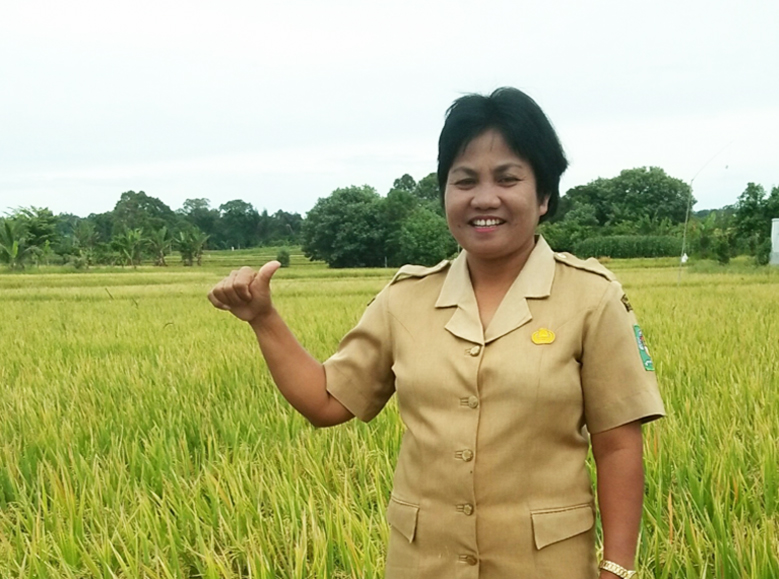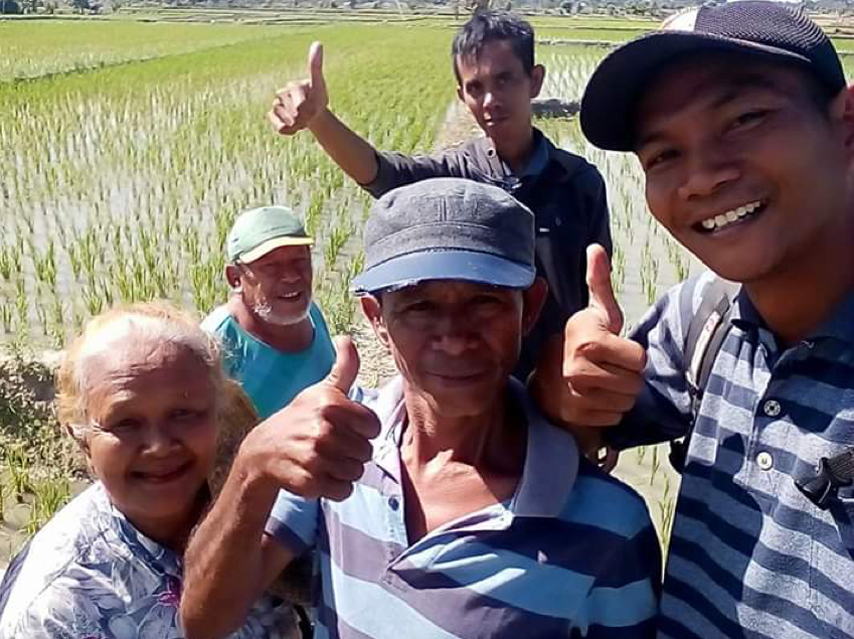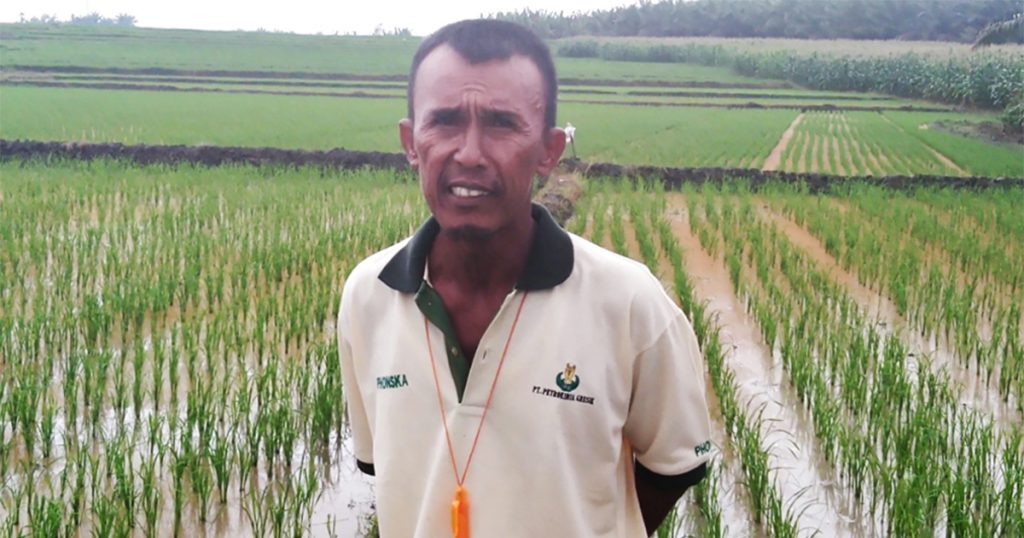In the northwest of the island of Sumatra, Mrs. Tiniar Saragih, now 50 years old, wakes up each morning to travel to see her family’s two-hectare rice field, the activity she has never foreseen until she got married with a rice farmer 18 years ago.
Mrs. Tiniar, who already works as a civil servant, just wanted to fulfil her role as a wife by helping her husband whose earning depends mainly on rice farming.
At first, she found it hard to combine daily activities of a farmer with her full-time job, but those days are long gone.
Mrs. Tiniar is now an active field facilitator of the Farmer Field School (FFS), a part of the Better Rice Initiative Asia (BRIA) Project, in her hometown in Simalungun, Panombean Pane sub-district.
“I am very lucky to have an opportunity to join the project. I attend BRIA’s Training of Trainer for Field Facilitators and my knowledge and facilitation skills have improved,” she happily shares her feeling.
Since June 2019, Mrs. Tiniar has served as a Head of Extension Office in the sub-district. She monitors and supervises the agricultural extensionists to ensure all government-supported programmes are being implemented properly to bring the economic and environmental benefits for the small farmers.

Mrs. Tiniar is not the only one who puts great effort into making a difference in the rice fields scattered across North Sumatra where small farmers are facing considerable challenges, from land and water scarcity and climate change to a lack of access to knowledge and technical expertise.
After finishing his high school education from Sekolah Pertanian Pembangunan with agriculture as a major subject, Andisyah Putra, 34, decided to become an agricultural extensionist without having second thoughts.
“BRIA has provided a lot of positive changes for me and for the farmers who participate in the Farmer Field School,” Andinsyah said, adding that the program offers not only good rice cultivation practices, but also introduce financial access through banks to farmers.
He direcly works with small farmers in Tanah Jawa sub-district. His primary role is to aid the farmer groups to make better decisions and increase agricultural production.
Mr. Andisyah has high hopes for the banks’ plans of taking ‘uncomplicated’ approach to offer soft loans for small-scale farmers who are still in deep debt due to lack of financial resources.
He also looks forward to seeing more young people taking up a career in agriculture and work together to drive positive change for farmers.

“I am a farmer and will always answer this to whoever asks me what I am doing for a living,” says Mr. Albiker Sidabutar, a 53-year-old farmer from Hutabayu Raja sub-district of the same province.
Though he is not young anymore, his passion for experimental farms to pass on successful new farming methods to other villagers never fails.
“The most interesting session for me is seed selection and treatment and also the usage of the soil test kit. I hardly can wait to apply the climate-friendly and sustainable farming techniques on my field and share the results to my friends.”

These three people had joined the intensive course called: Training of Trainer for Field Facilitators which provides practical knowledge covering all stages of farming cultivation, from the land preparation to harvesting and post-harvest management.
The training educates the field facilitators about Good Agricultural Practices (GAP) and facilitation skills through active methods such as working group discussion, role-play and field practices causing participants to be actively involved. The expectation is with their improved skills, they would be able to transfer the knowledge to the farmers during the FFS.
One cannot underestimate the importance of the field facilitators. The better the roles of the field facilitators is, the greater the opportunities for adaptation of the low carbon emission farming techniques that as a result will increase the yields and create successful farmers in each village of Indonesia will be.
